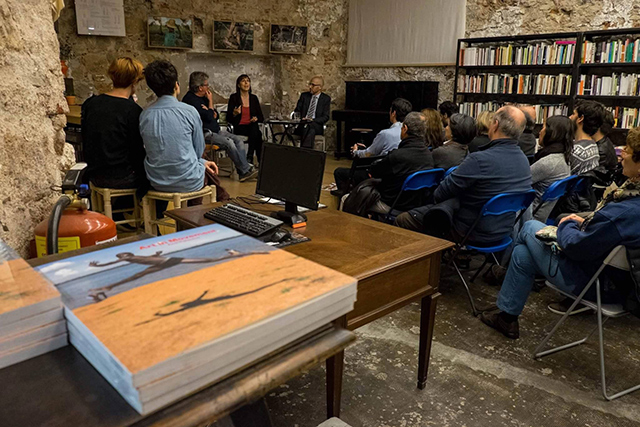Main Menu
- EnvironmentHealth
Main Menu
- EnvironmentHealth
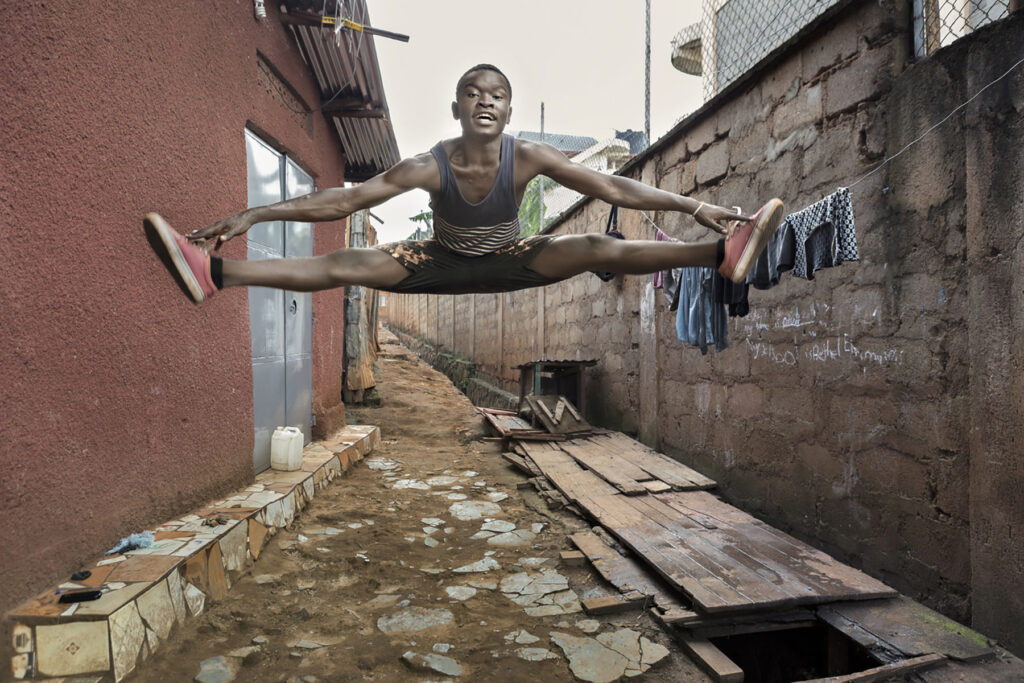
Hamuza’s leap. The stench in Kibuli, the ghetto where Hamuza lives, is unbearable. The sanitary waste water drainage system is poor and rubbish is piled up everywhere, but anywhere is good for practising his passion for dance.
“Every person has the right to freely take part in the cultural life of the community, enjoy the arts and participate in scientific progress and the benefits of its results.”
Article 27 of the Universal Declaration of Human Rights. United Nations. Paris, 1948.
Art is the expression of the soul. When day-to-day existence is a fight for survival, time and space for creation is reduced or disappears. This work is a claim for the universal right to enjoy the arts, even for the young inhabitants in the slums of Kampala, Uganda.
Music, dance, the circus, graffiti, photography…are tools for social change. Well-orchestrated instruments which produce self-esteem and confidence in these adolescents with scarce economic resources. Art inspires, stimulates and satisfies. Education of the imagination, a strong beginning for building a better society.
These jumps are of their energy, their claim and their strength. They symbolize transformation, transcendence and longing for a loftier present.
* The project is supported by the Spanish NGO In Movement, art for social change.
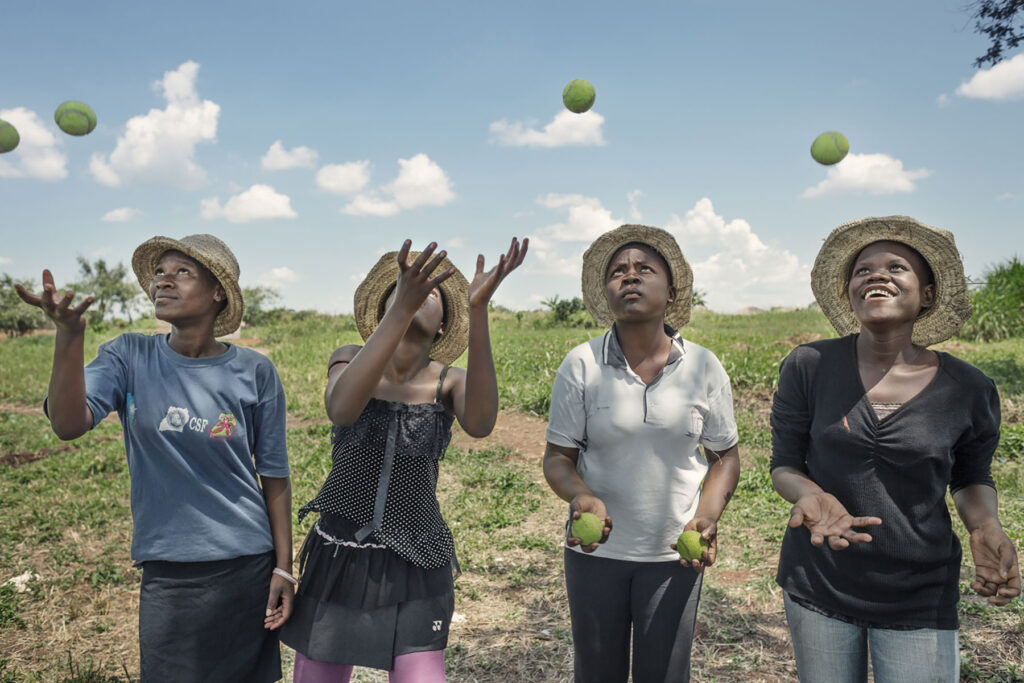
In Movement is an NGO that works with young people using art as a tool for social change.
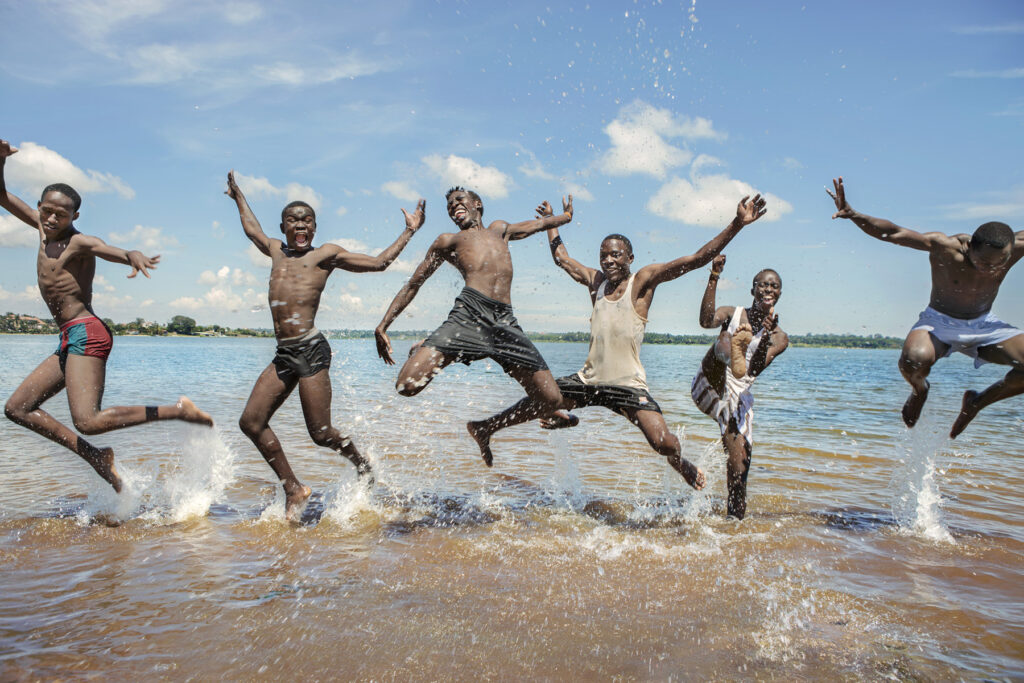
Young people with no financial support leaping at Lake Victoria, Uganda.
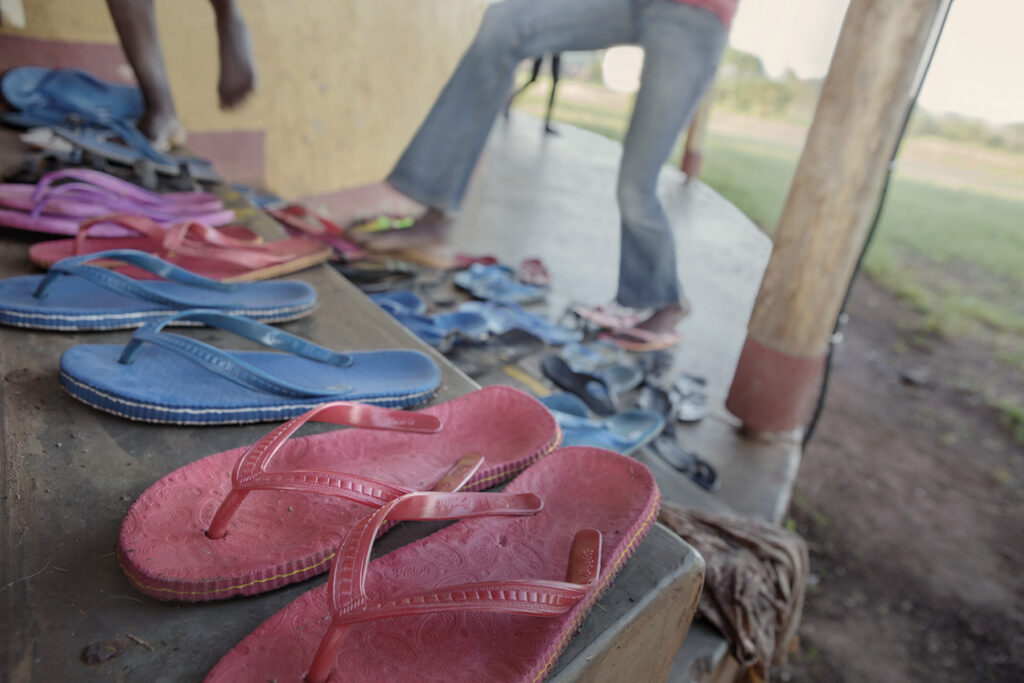
Thousands of vulnerable young people have lived in Hope North and nowadays, football tournaments, theatre productions and educational activities are held in various towns across northern Uganda, the most heavily destroyed area during the civil war.
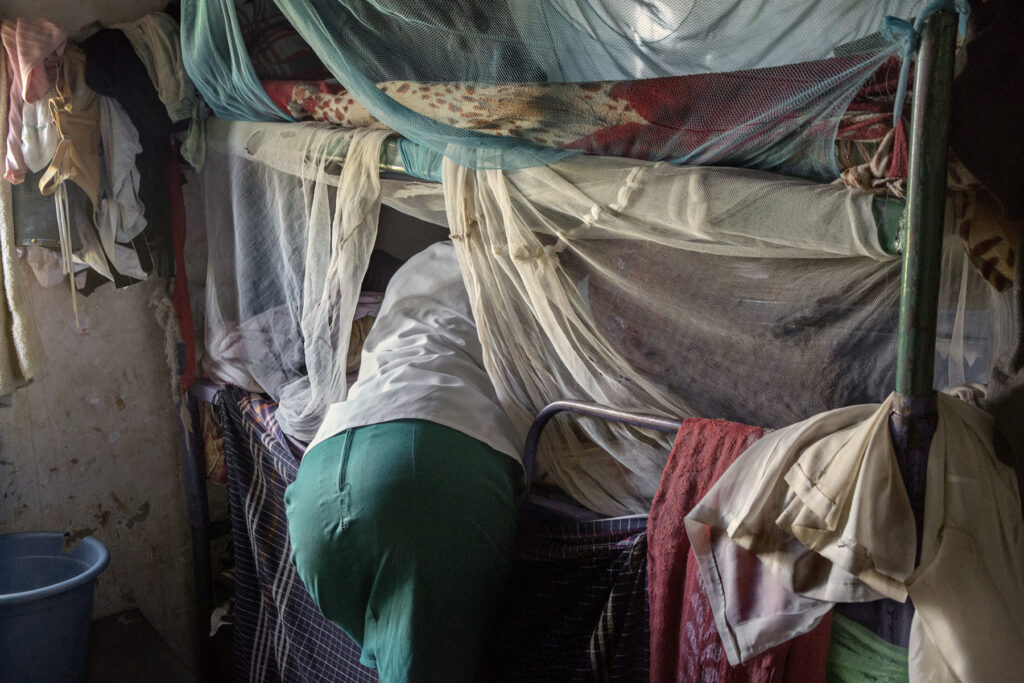
Hope North (Bweyale, northern Uganda) is a school set up in 1998 by Sam Okello and takes in child victims of the civil war, including orphans and child soldiers, equipping them with the skills to become spokespeople for peace and development. This centre hosts and encourages “art as a tool for social change” programs at its facilities.
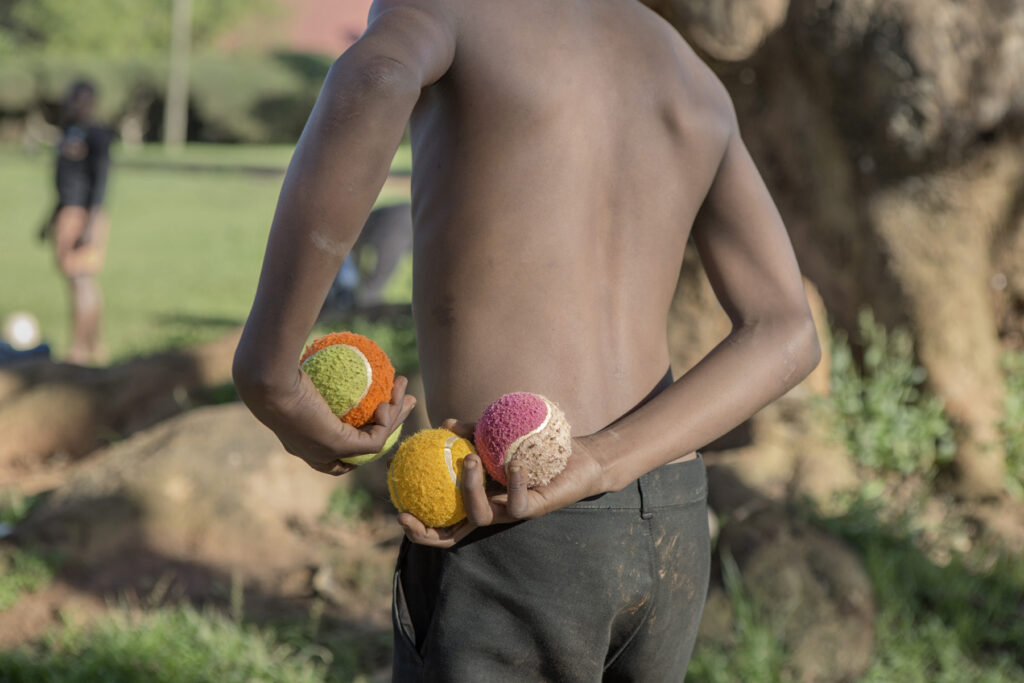
The NGO, In Movement, provides arts education classes in painting, music, poetry, dance, graffiti, theatre, photography and, of course, circus. This helps youngsters’ self-confidence, keeps them stimulated and improves their self-esteem.
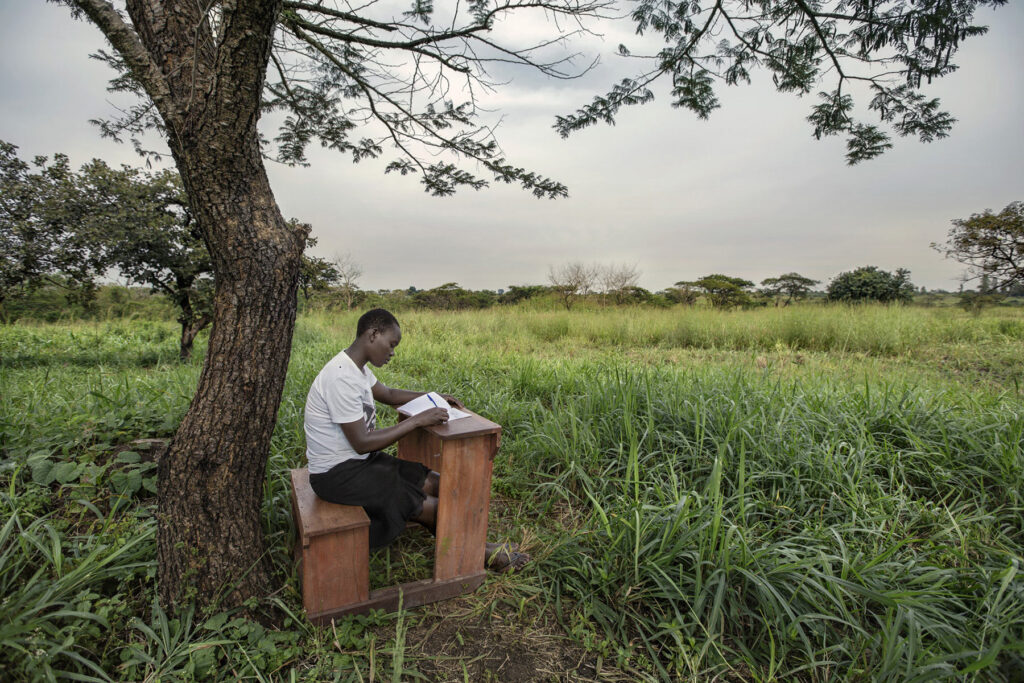
STATISTICAL DATA UGANDA 2014
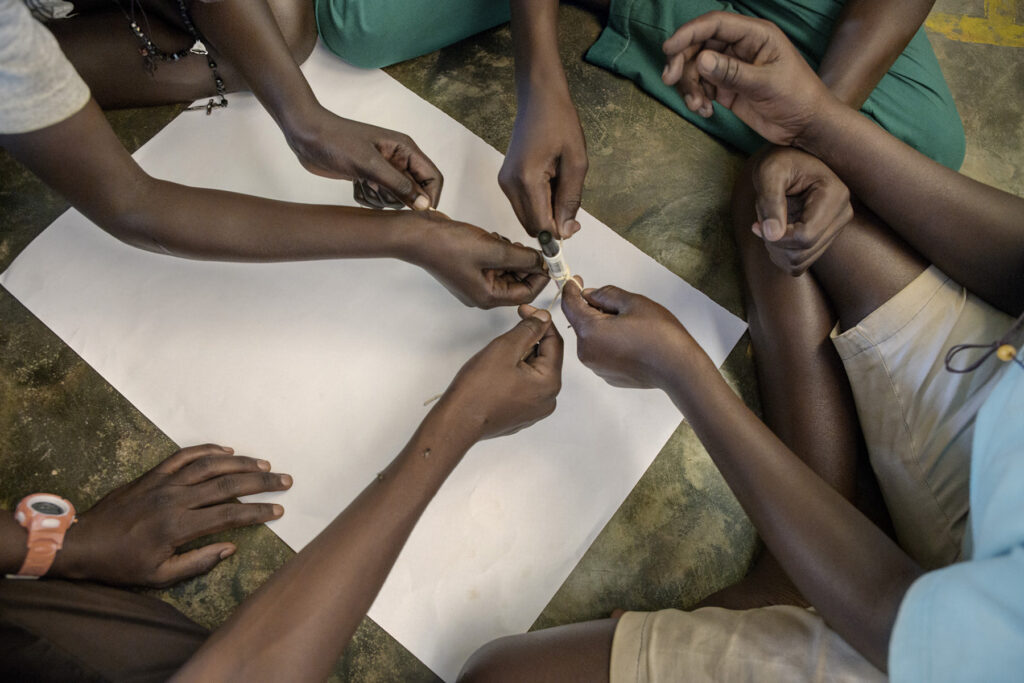
70% of the population is aged under 18. The highest percentage of Africa.
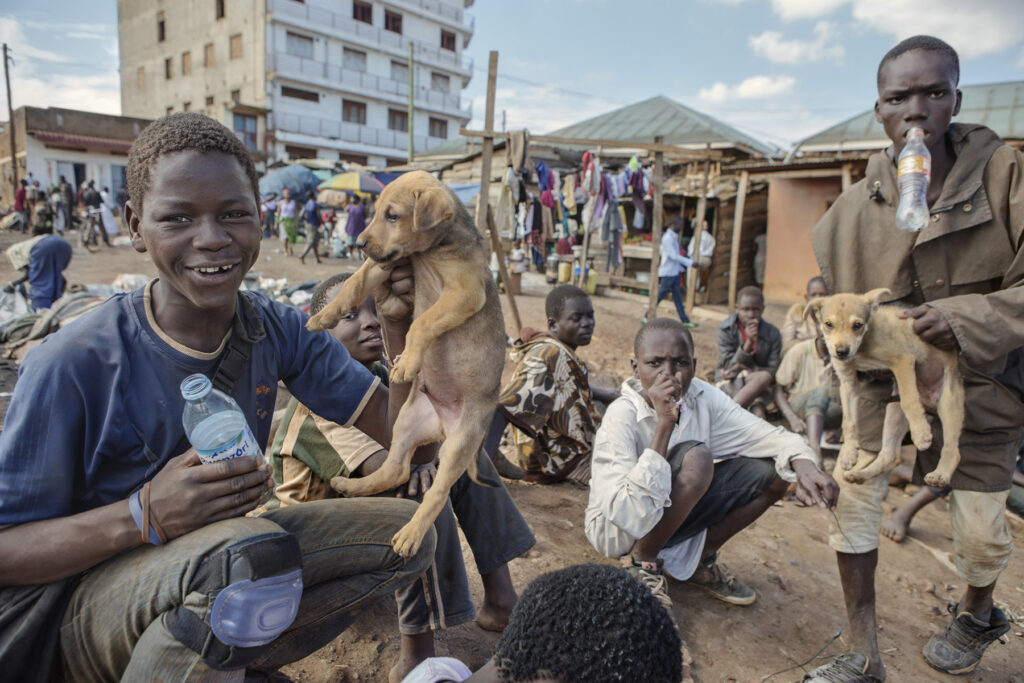
A group of street kids, who make a living by selling plastic and metal by weight, playing with their pets while inhaling kerosene. Childhood & Poverty. In Kampala, the capital of Uganda, children and youngsters often take refuge in drug and alcohol consumption to evade poverty.
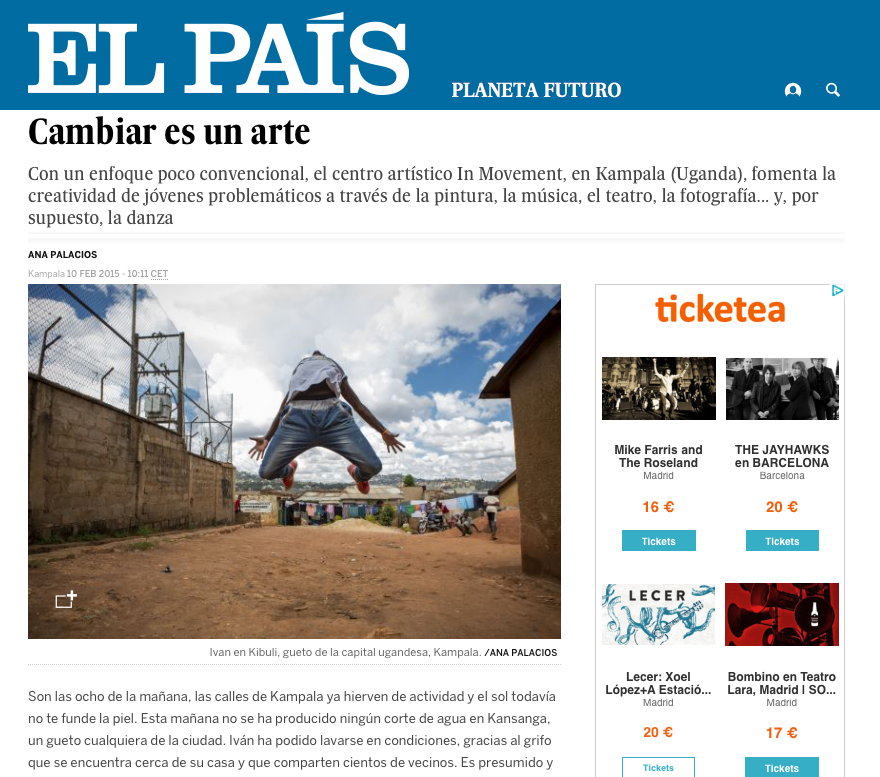
Elpais.es – Cambiar es un arte (Changing is an Art). February 10th, 2015
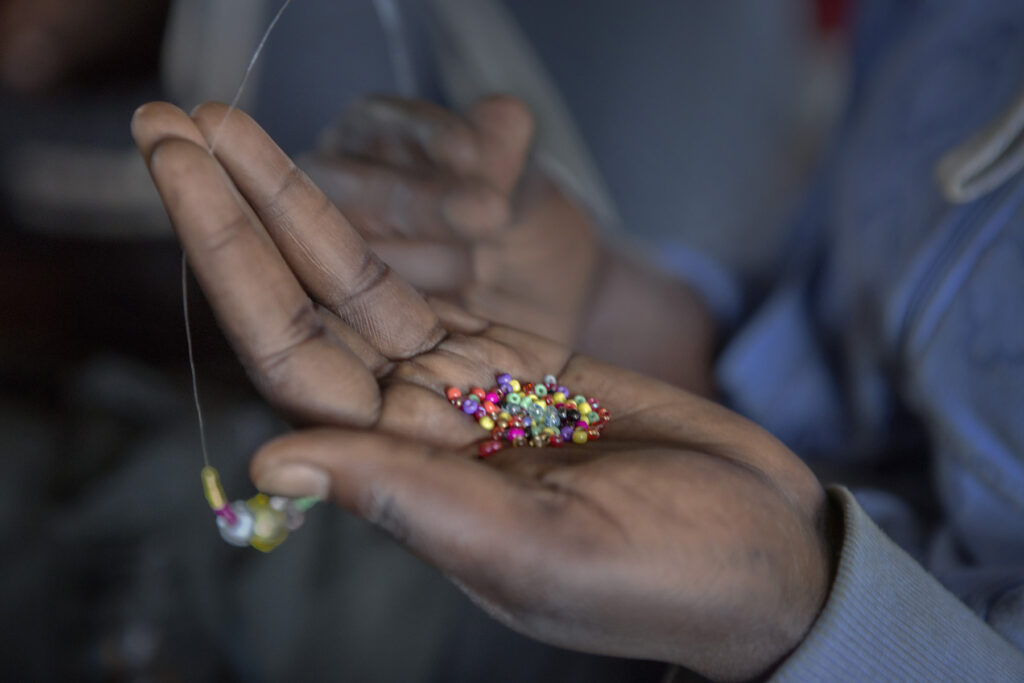
Painting T-shirts, designing bracelets, sketching… are not the goal, it is a way of developing creativity. This skill will help these kids to think for themselves and to face their future with a wider perspective.
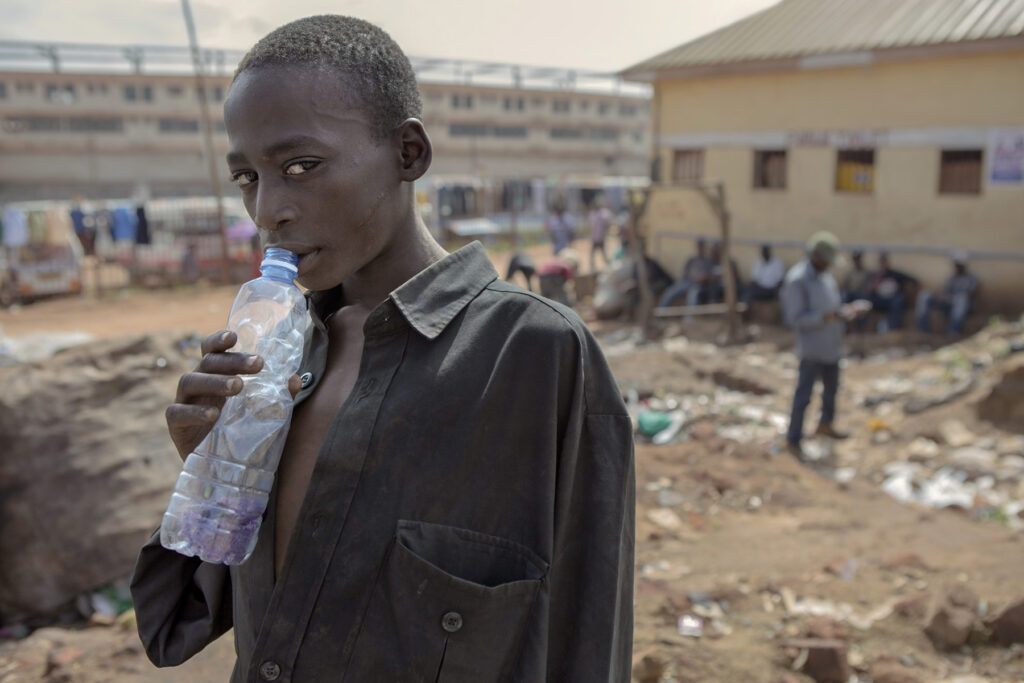
Street kid. Mukwasi Robert has lived in Kinsenyi since he was orphaned when floods devastated his village, Mbale, in 2010.
Children in Uganda’s slums inhale drugs which can be bought legally: gasoline, kerosene and paint thinner. Not only are they cheap, they also help users to fight inhibitions, lose fear, steal or prostitute themselves.
Kerosene children.
Photography and video
Ana Palacios
Editing
Javi Moreno
With the collaboration of
NGO In Movement
Acción Social. Ayuntamiento de Zaragoza.
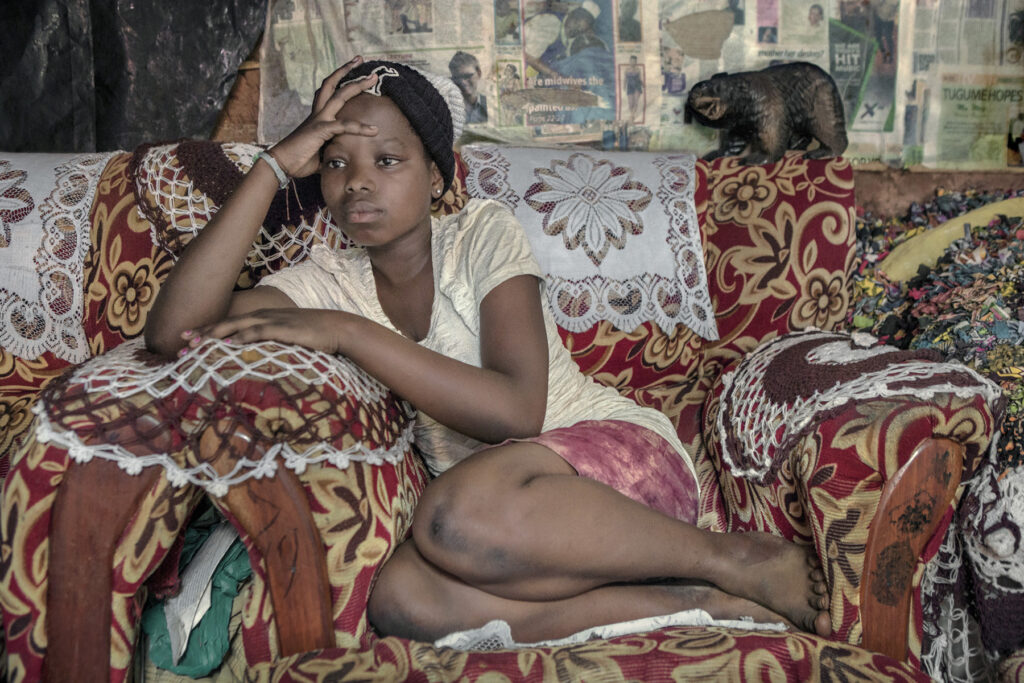
When daily life consists of struggling to survive, time and space for creativity is either scarce or non-existent. Zulaikah lives in Kibuli, a shanty town in Kampala that becomes extremely dangerous at nightfall.
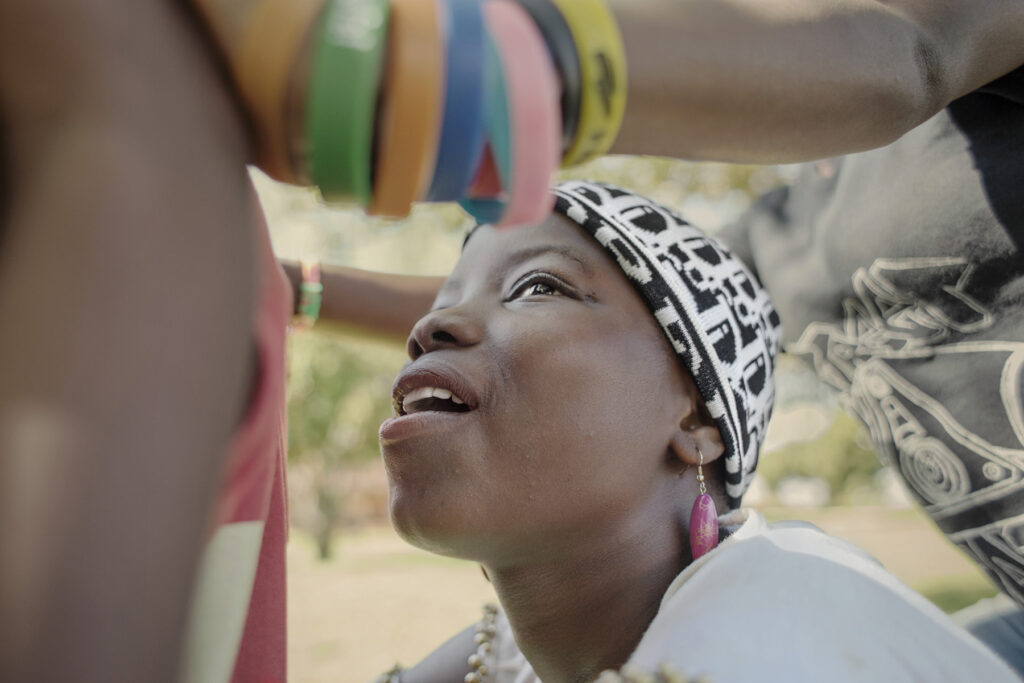
Zulaikah changed the way to face her life when she started attending to art classes at In Movement facilities in Kampala. She has now a positive attitude. She has built strength and developed creative tools to approach problems that come across her day to day life.
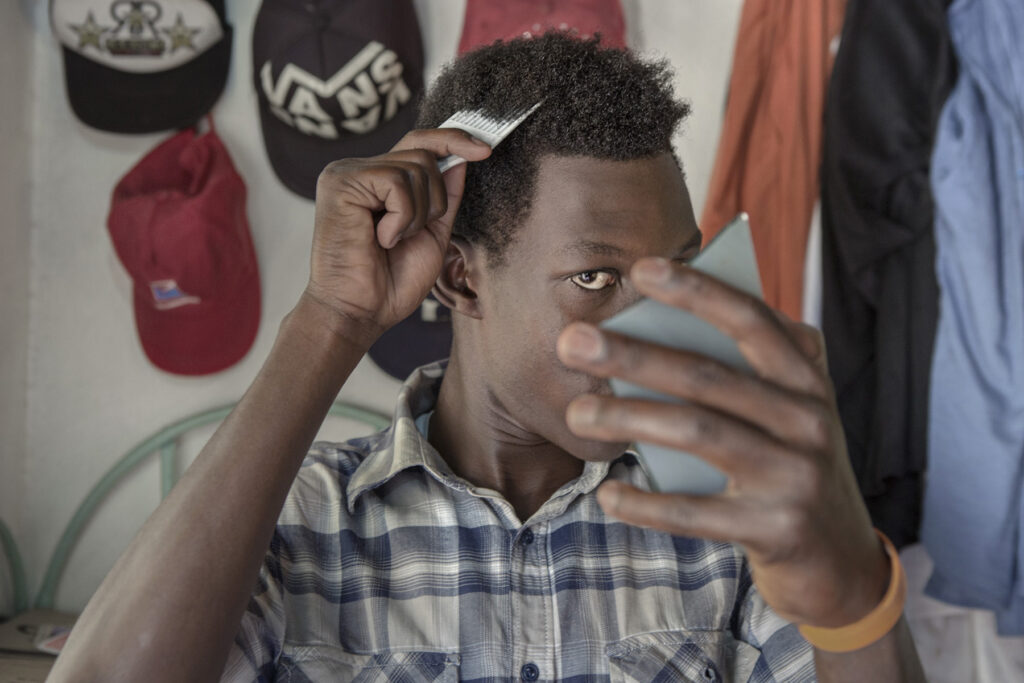
Ivan Musiime lives alone in the Kansanga ghetto in Kampala. He earned some money a couple of years ago, when he was chosen to perform in Poland and in France with other young people at risk of social exclusion, and this has enabled him to live on his own.
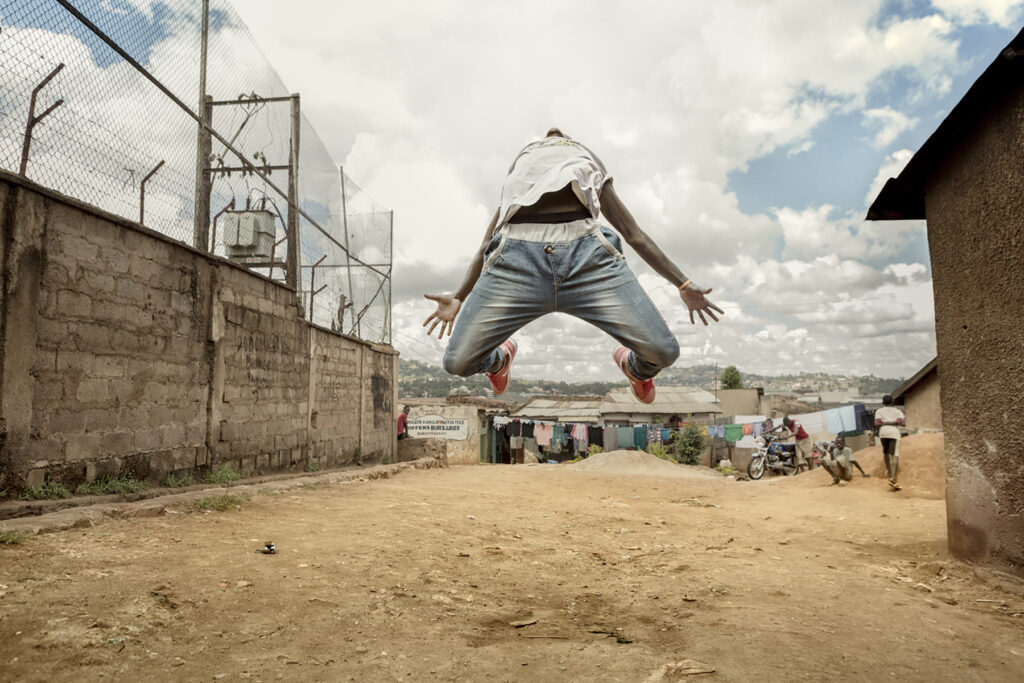
Ivan Musiime, aged 18: “First my mother sold fruit so we could eat, then she sold her body. I escaped from the village because my uncles used to torture me. I arrived in Kampala with nothing and with no-one. I am what I am today because all these artistic activities I’m doing have taught me techniques for having self-confidence, being in charge of my own life and controlling my temper. Now I know how to speak in public and I can even teach other people what I’ve learnt”.
Ivan leaps in Kibuli, a ghetto in the Ugandan capital of Kampala. These leaps are his energy, his strategy and his strength. They symbolise transformation, achievement and the desire for a better future.
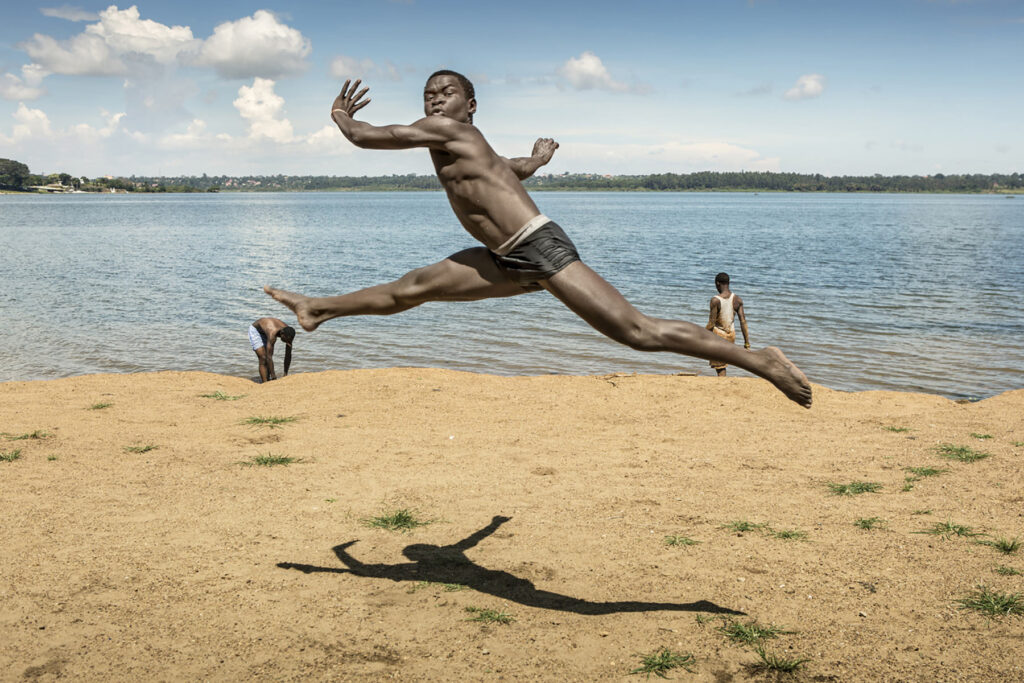
At 15 years old, Hamuza Primo might have been sniffing kerosene, a popular activity in Central Kampala, along with hundreds of other kids in similar circumstances. But he discovered dance. Dance has allowed him to forget his fears and has empowered his spirit. People pay attention to him and he pays attention to himself. Now he speaks out, expresses himself and shares.
Dance class at In Movement.
Hamuza, Ivan, Mercy and Sharon practice the dance routine with Sam Smith song “Stay with me” at the In Movement facilities. These kids cannot always make it to school due to lack of money to pay the school fees. In Movement gives them a secure enviroment, promoting their creativity and self steem thru the practise of art disciplines.
Photography and video
Ana Palacios
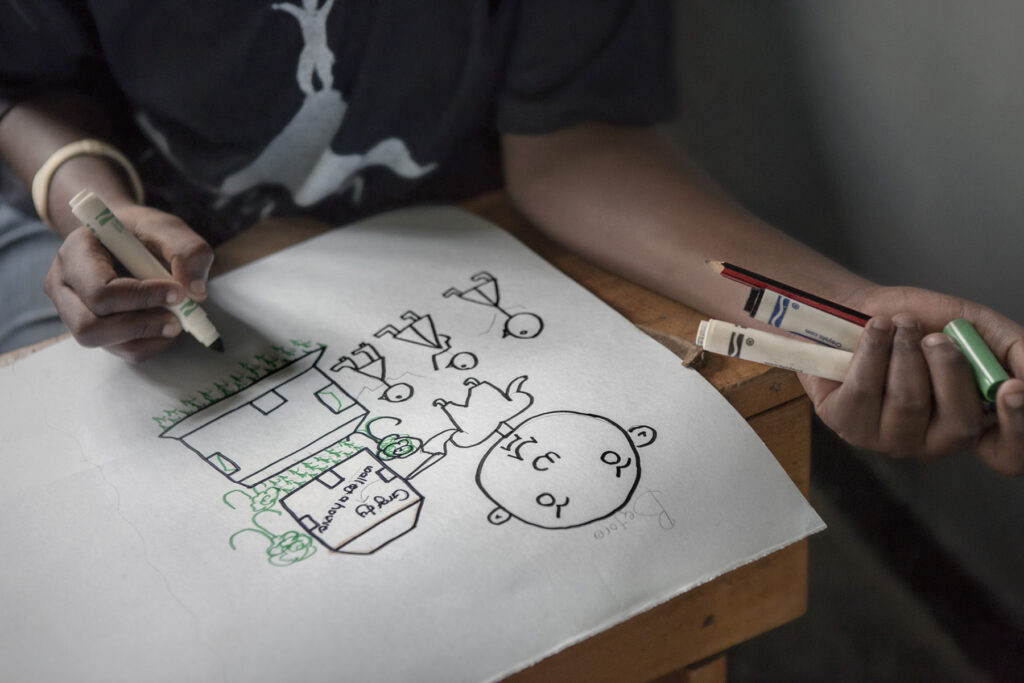
Art inspires, stimulates and satisfies: imaginative education is a great start for building a better society.
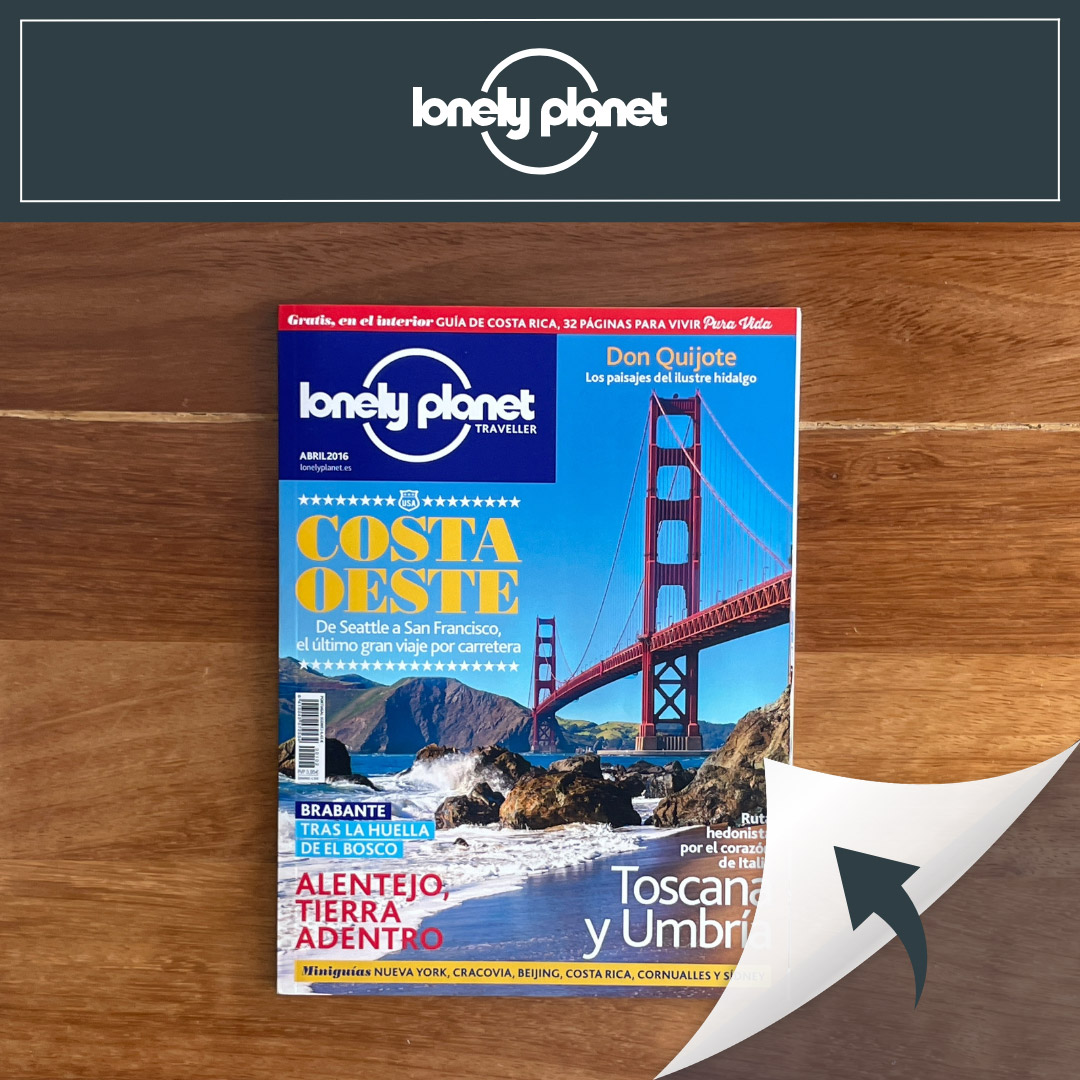

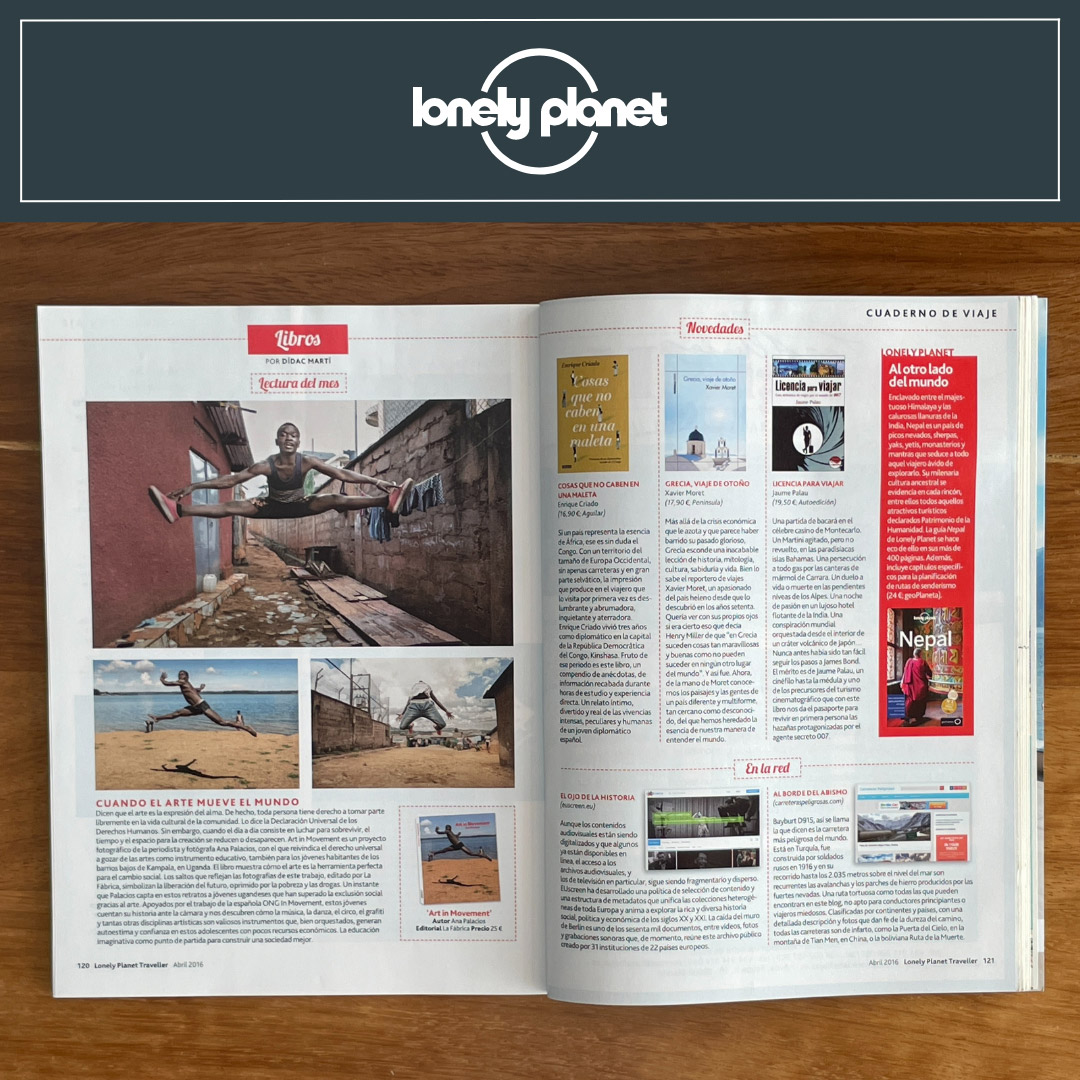
Lonely Planet Traveller – Cuando el arte mueve el mundo (When Art Moves the World). April 2016
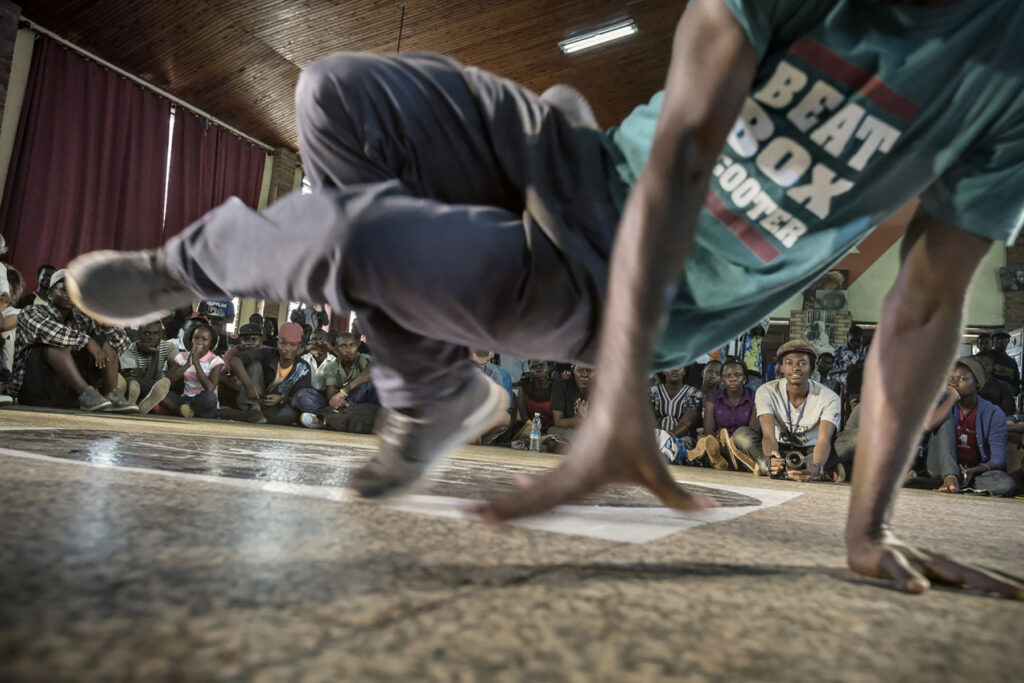
“I experience art as therapy”. Kibuuka Mukisa Oscar, 22 years old, photographer and director of documentary films.
Kibuuka Mukisa Oscar began taking photographs of the world of breakdance; someone lent him a compact camera to take some photos at the Breakdance Project Uganda and now, a few years later, he is continuing to work on this documentary project. He pays for his camera lenses with microcredits. He has directed three documentaries and teaches photography to underprivileged children.
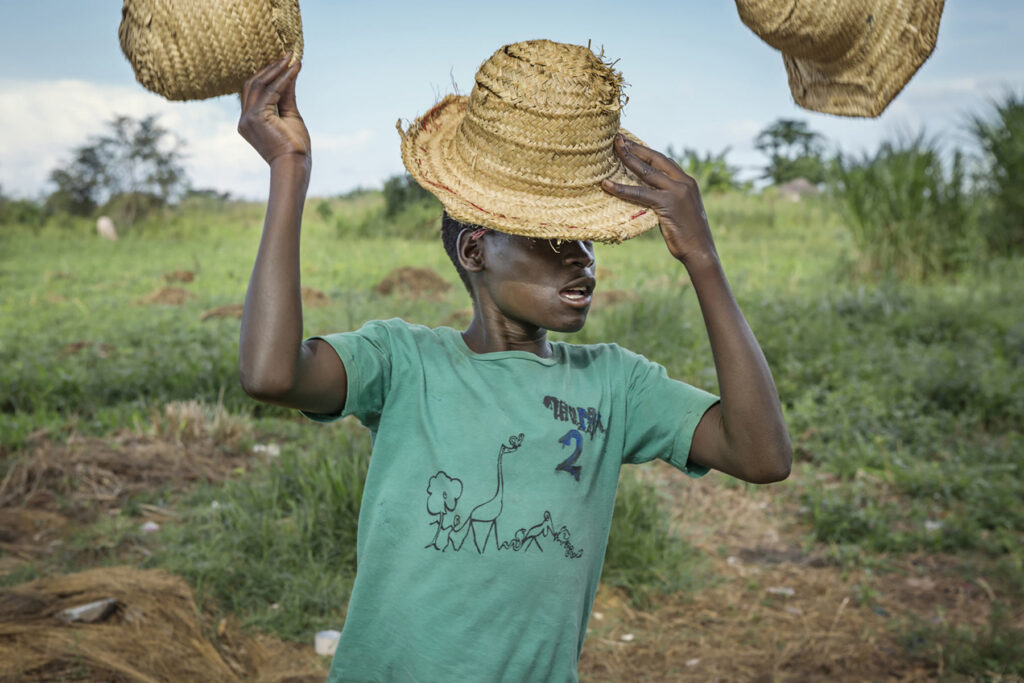
Art is a catalyst for personal growth. Music, dance, circus, graffiti and so on, are all tools for social change. They are well orchestrated instruments that generate self-esteem in these adolescents with scarce financial resources.
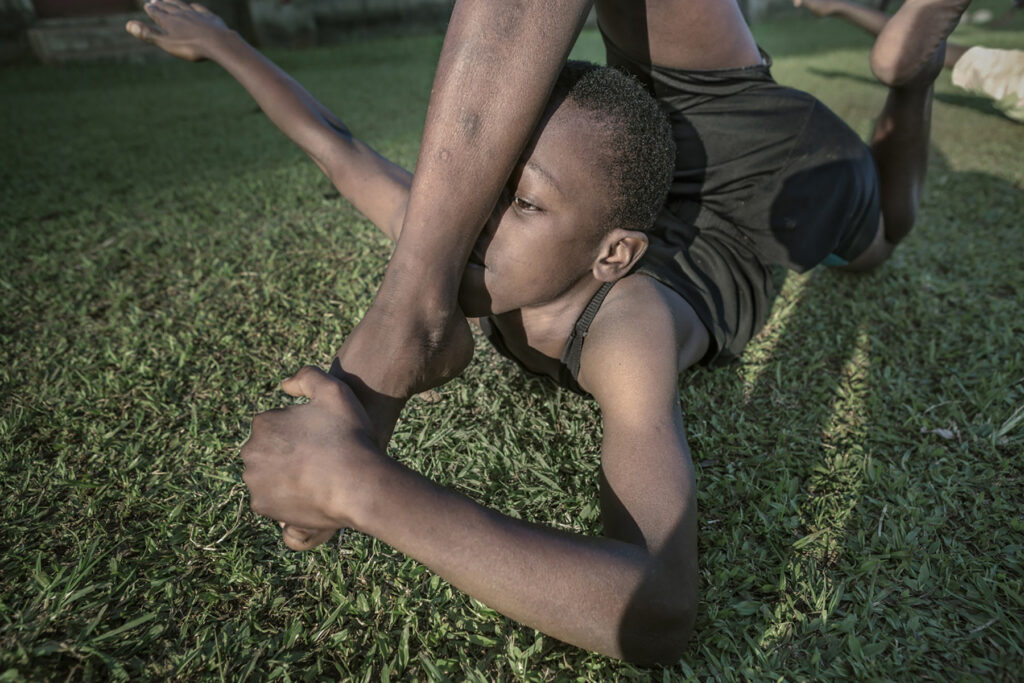
Children practising circus games, this keeps them away from the streets and eventually maybe they can perform professionally and earn their own living.
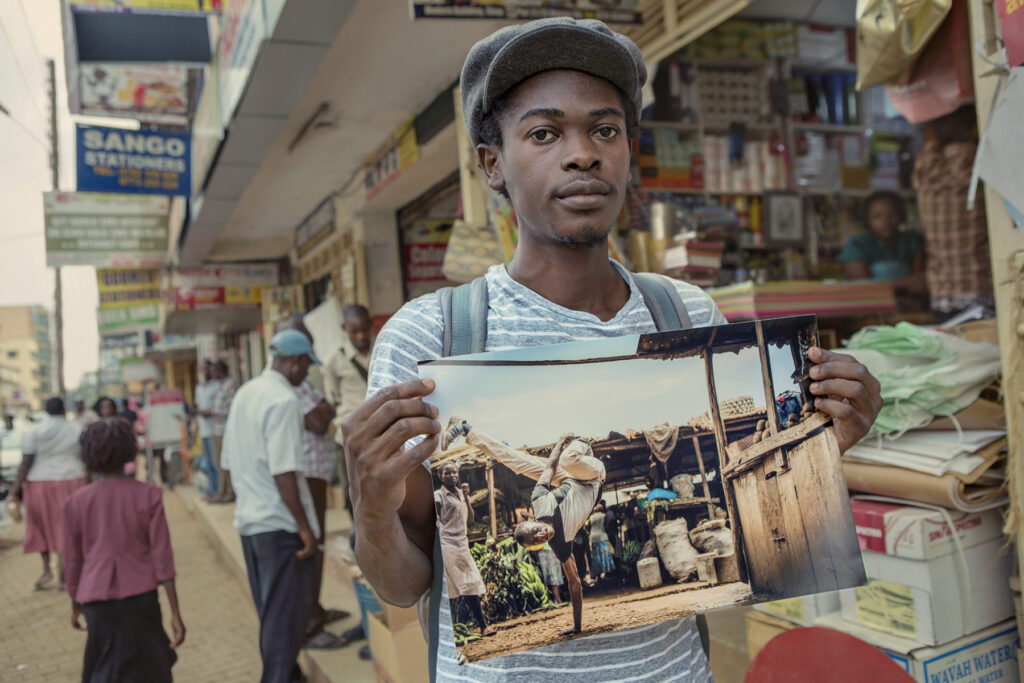
Kibuuka Mukisa Oscar photographs participants in the Breakfast Jam, a breakdance competition held every year in Kampala.
His long-term project is to produce a book with photographs of breakdance performers in different African countries and show the various urban tribes that thrive on the African continent.
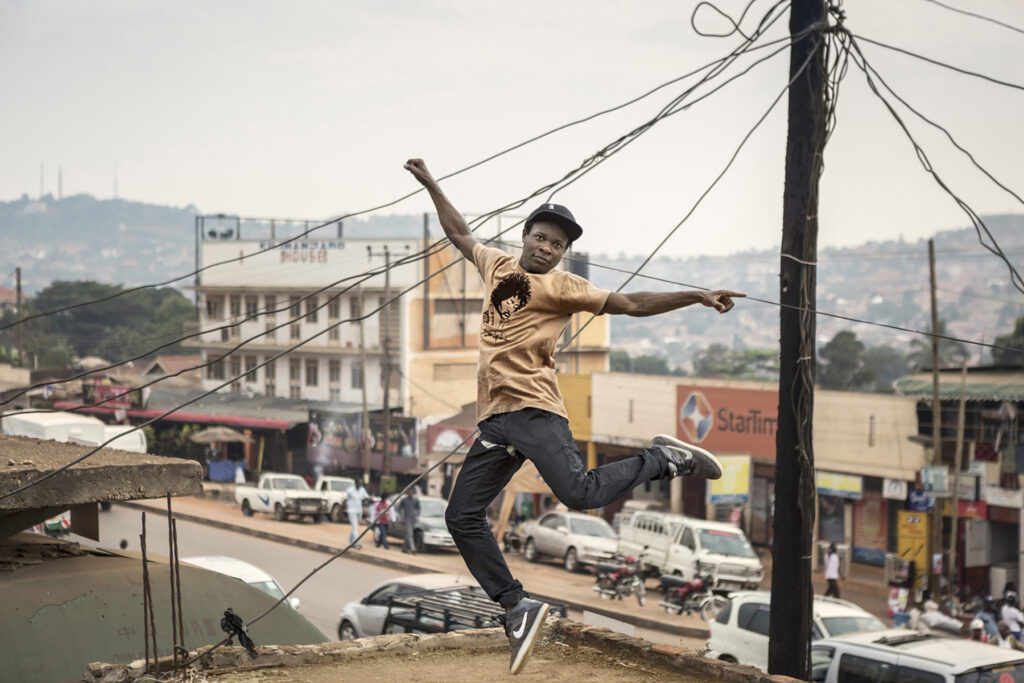
Jeff’s leap. “At aged eight I was completely lost, my father had just died and my mother couldn’t look after her seven children, so I had to leave school to help out at home. I began to dance without knowing it was a therapy for getting away from what I was going through”. Ssemaganda Jeff Kenneth, aged 20.
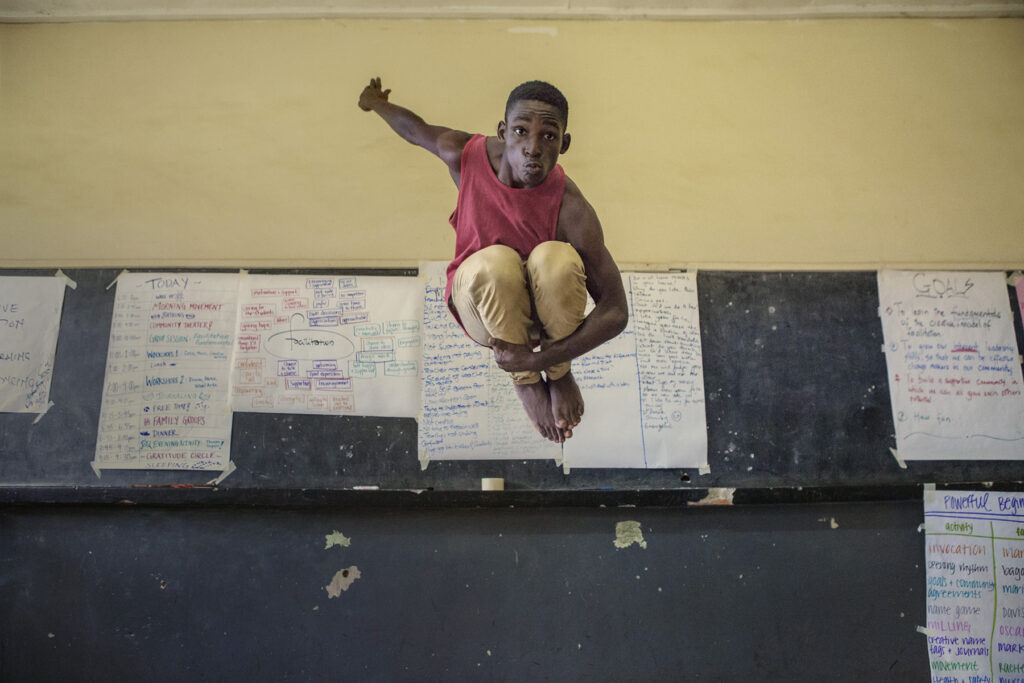
“The happiest moment of my life was when I started dancing and I realised I was good at it”. Hamis Zzy is 18 and lives in the Nsambya ghetto in Kampala.
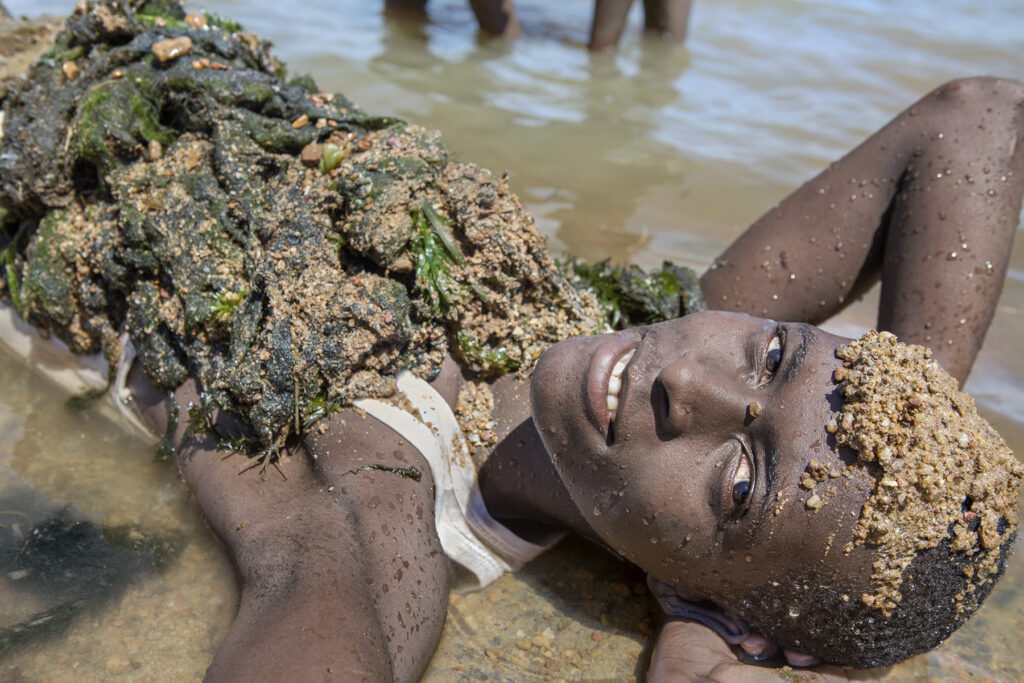
Muyuni Isaac Diaz Oscar. An “In Movement” program student at Lake Victoria, 2014.
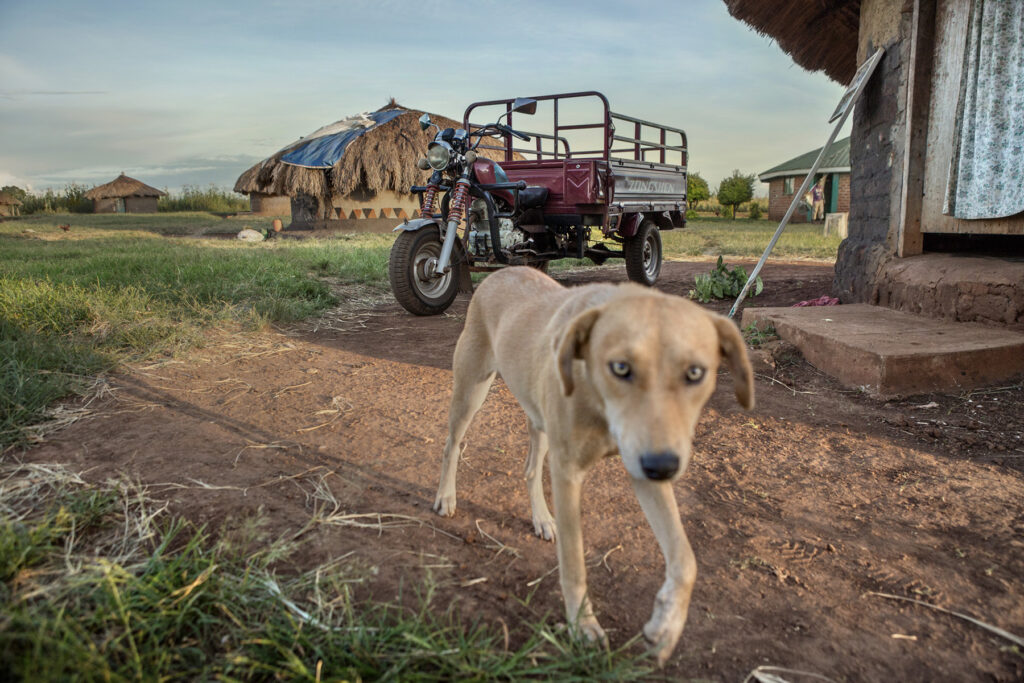
Hope North (Bweyale, northern Uganda) is a school set up in 1998 by Sam Okello and takes in child victims of the civil war, including orphans and child soldiers, equipping them with the skills to become spokespeople for peace and development. This centre hosts and encourages “art as a tool for social change” programs at its facilities.
Hope North.
Photography and video
Ana Palacios
Editing
Javi Moreno
With the collaboration of
NGO In Movement
Acción Social. Ayuntamiento de Zaragoza.
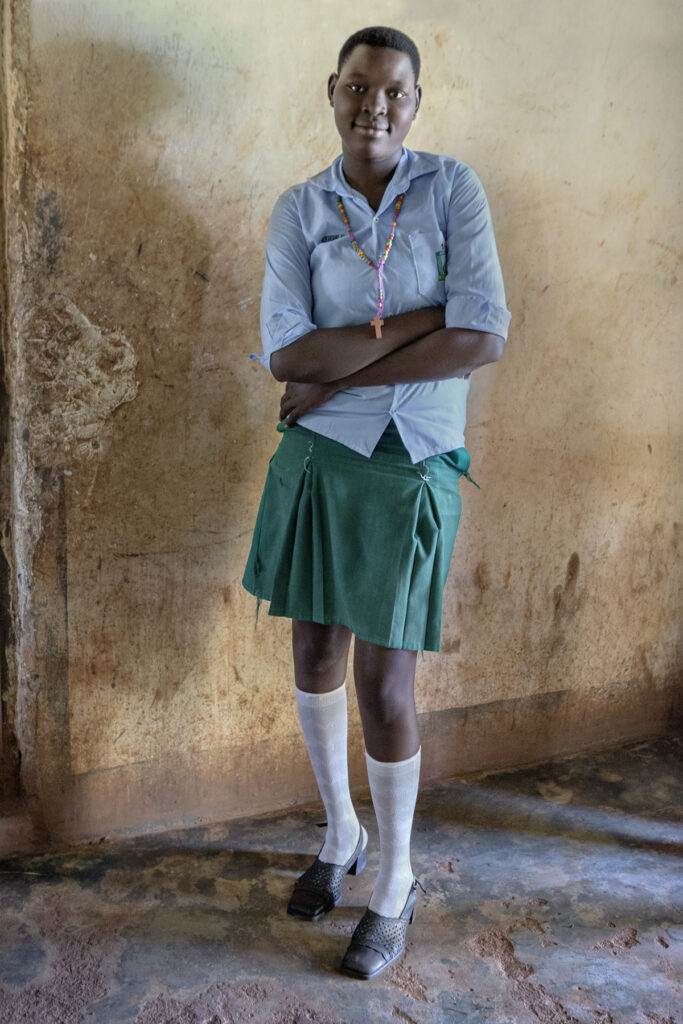
Amung Betty. A student who studies and lives in Hope North, 2014. She takes care of the kitchen needs, control the costs and manage small admistration duties. Students develope comunity work to help and keep their tuition fees low.
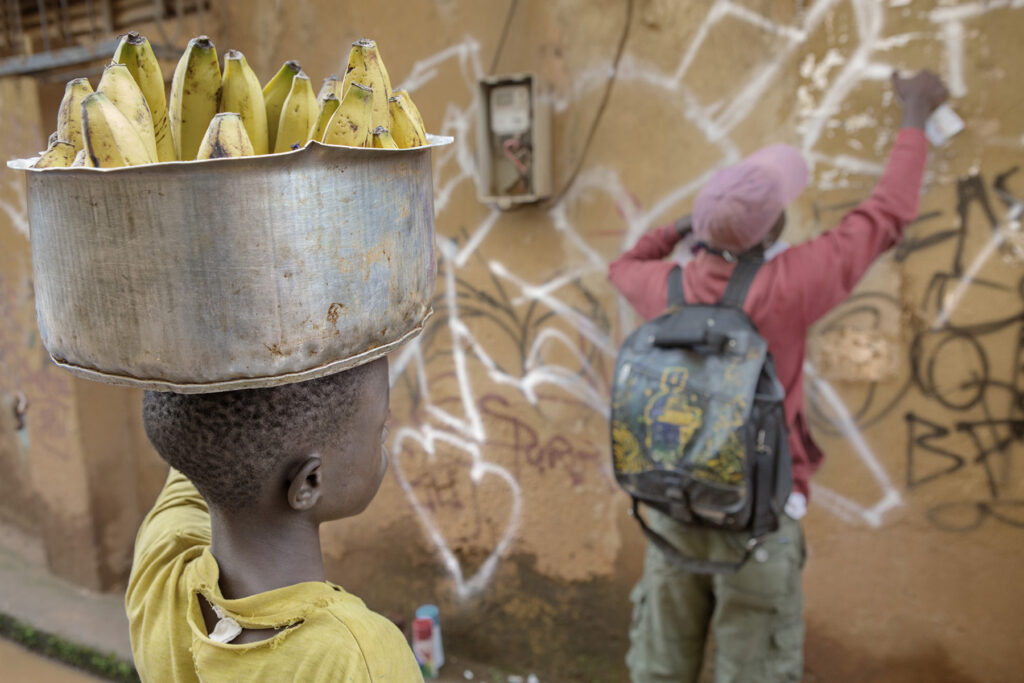
Lubega Peter “Sparrow” dreams of filling Uganda’s walls with graffiti art. Founder of Monk 256, a group of young graffiti artists, he has been involved in street art since 2010, trying to make an impact on Ugandan society with this artistic discipline and creating a sense of community with other artists who have similar interests.
“I paint walls because it’s fun and also to attract people’s attention to social problems like lack of respect and abuse”. Sparrow, aged 18, lives in the Kibuli ghetto.
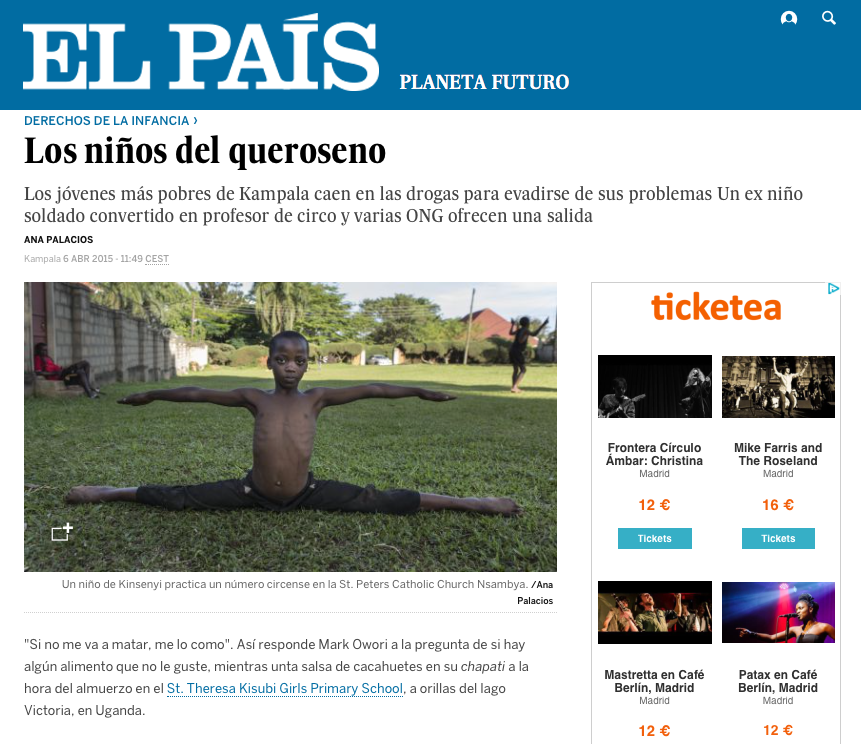
Elpais.es – Los niños del queroseno (Kerosene Children). April 6th, 2015
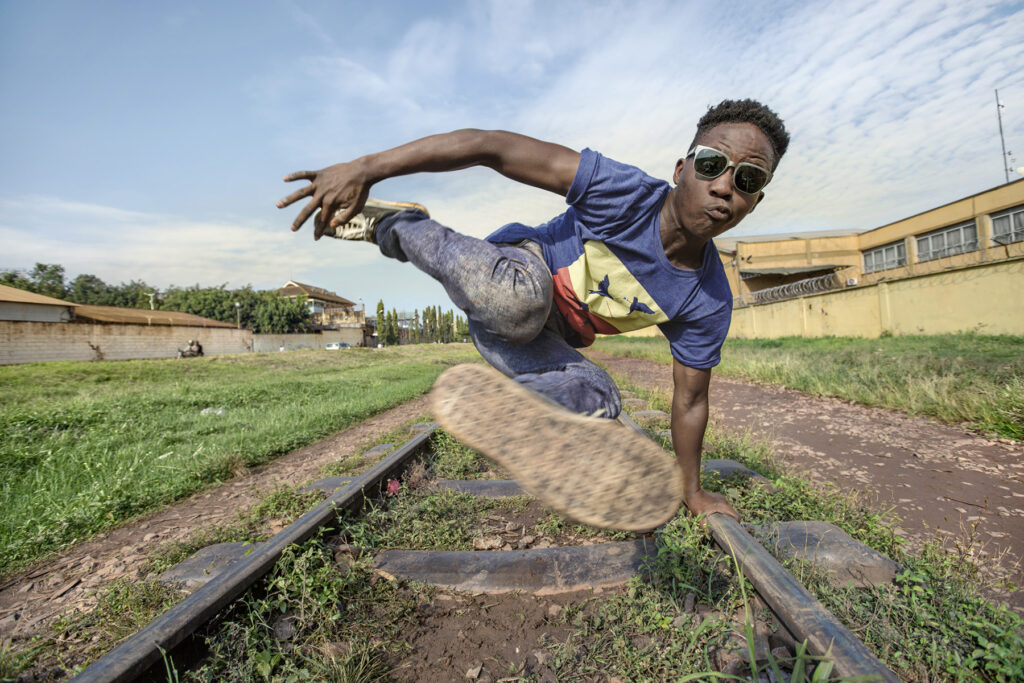
Eric’s leap. “In hip hop there’s a lot of respect, we train as a group and now my colleagues are my family. Working as a team is very inspiring”.
Eric Egesa began doing breakdance at the age of 12. His parents could not afford school fees, but the small income he made from performing meant he could complete his studies. Today he is a dancer and dance teacher at the International School in Kampala. He also features in the documentary film Shake the Dust, directed by Adam Sjöberg, on the importance of dance as a universal form of expression. In September 2014 he travelled to the United States to attend the première of the documentary, a dream come true for him.
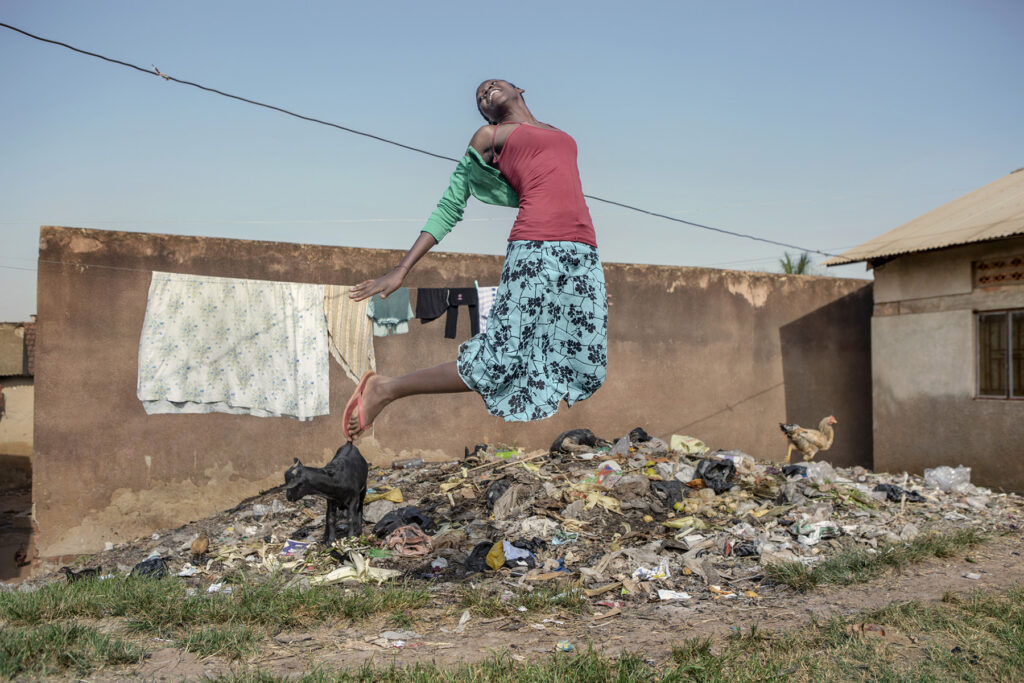
Mercy’s leap. Since she is involved in artistic activities she says there has been a change within her, she questions social and political facts in her country and has more motivation to control her future.
PhotoESPAÑA 2024. Art in Movement
Truck Art Project. Spain
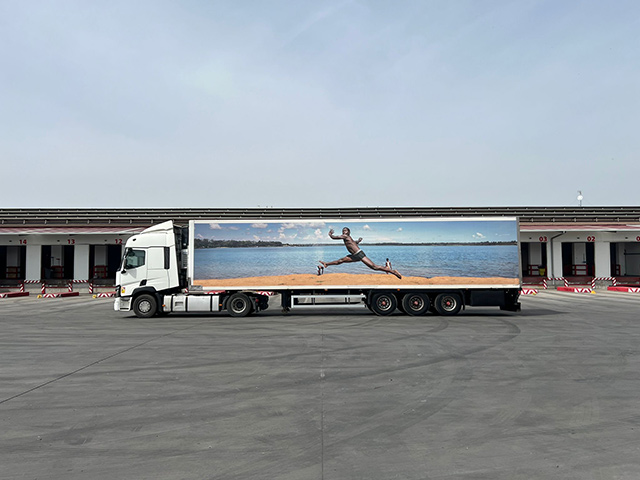
The art of living
ACCI Gallery. Berkeley (USA).
Art in movement
Book presentation. Barcelona
